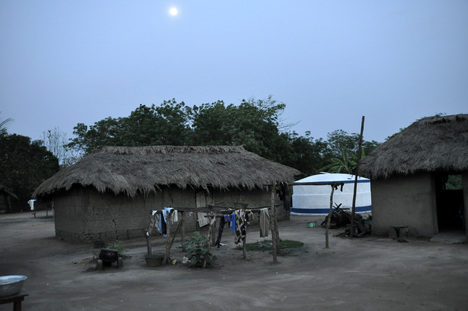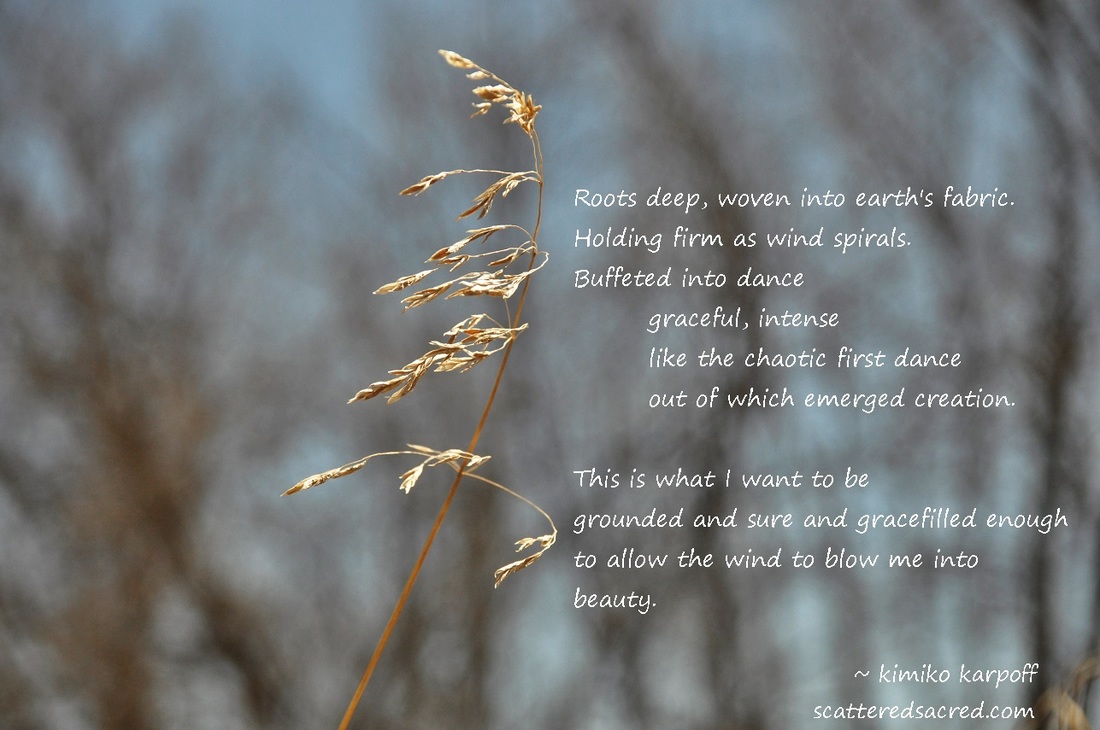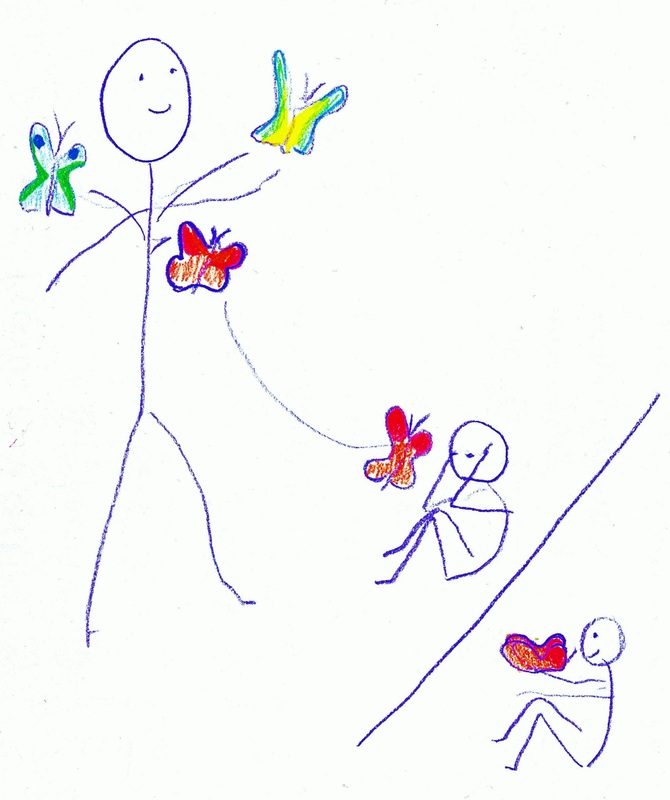 When I was in Africa, I stayed in a village that was a journey and a half away from the things we would consider modern conveniences, nay, modern necessities. After a journey by trotro, taxi, large river boat, small river boat and many foot paths, we arrived in the village of Adexor-Kpodzi. This is a small farming village with no running water, no cars, no electricity. It's the no electricity that I'm thinking about right now. An absence of electricity is almost unfathomable for a big-city North American girl. I live in a place where electricity is so prevalent, I don't even have to use it myself to have my environment changed by it. Light is perhaps the most significant. If I get up in the night to go to the bathroom, I don't need a night light to see. The light that spills in through the windows, even with the blinds shut, is enough to navigate through the apartment. Conversely, I remember one summer being at Naramata, which is a village and still small enough to escape the complete washing away of darkness by excessive lighting. One night I woke up and wandered off toward the bathroom. I was sure I could navigate in the dark. Only I found myself confronted by a guitar which was nowhere near where I was sure the door was. Even that experience was unlike the nights in Adexor-Kpodzi. There, without room lights, streets lamps, car headlights, tv screens or computer monitors, unless someone lit a kerosene lantern or had one of the few and really inadequate flash lights, night was total. Total night did not, however, mean a complete absence of light. This is where I learned how distanced I normally am from the rhythm of the moon. Here in the city, the phase of the moon means very little to me. It doesn't even affect the rhythm of my menstrual cycle. Although full and new moons are marked on the calendar, I have to really think about it to remember if the black circle or the empty circle means the moon is full. It really makes no difference. But it did make a difference in the village. Full moon nights are bright enough to light the footpaths. New moon nights are not. And here's something else I learned; walking on the path by the light of the full moon is actually easier than navigating with a flashlight. The flashlight is too harsh. It casts shadows and makes it difficult to see upcoming bumps and holes in the trail. The brightness of the artificial light causes the eyes to set for bright and creates night blindness. Meaning you can't see in the dark. But by the moon you can. Moonlight is lovely and gentle. It lets your eyes keep their night vision. I have found myself lately longing for an African night. In part it's because life in the village was lived mostly outside. So night was a time of being out and surrounded. Surrounded by dark, yes, but also by stars, by a gentling of the heat of the day, by quiet. At home night often means harsh lights and the noise of all of those electronic things that fill our lives from the television to the refrigerator. Night time in the village drew us in, made the world a little, not smaller exactly, but more focussed. Last year I attended a workshop where one of the activities we had was to wander through a room of photographs and select one that called to us. The one I chose was actually a drawing and it depicted a fairytale creature sitting on a boulder in a grove of trees, in the moonlight. It was a space surrounded by night. Look out your window during the day and your eyes are bombarded with a hundred different things to look at. Look out your window at night and your eyes are immediately drawn to the lit kitchen window at the neighbour's house. Darkness allows us to focus our attention. In Adexor-Kpodzi I learned that the light of the moon created a space. Sitting outside at night was like gathering in the family room with the darkness creating the walls. Walking at night, the moon lit the path but somehow didn't illuminate all of the other things that can become a distraction. This is what I found myself longing for. We seem to do everything in our power, with the literal power of electricity, to stave off the night. But letting it be may be what truly enhances our vision. The dark hours reveal the comfort of night-built walls that leave open, and just enough lit, the thing that are most important: the path, the family, the food on the table, our next first step into the unknown. May it be so. January 10, 2015
2 Comments
7/20/2019 06:06:35 am
Sometimes, the simplicity of life will make us realize a lot of things in pour personality. It brings us back to who we are before and how life transformed us all throughout the years. Your experience while you were an Africa also gave me a lesson; and that is to appreciate the simplicity of life and we should never be demanding for things. Let the things that are bound to happen happens without any resistance from you. You might never know it, but it would bring a lot of god changes in your life.
Reply
Carolynne Bouey Shank
4/29/2022 08:07:47 pm
Today my home had no electrical power. I had been forewarned by our electrical company that our block would have an outage for up to 4 hours. They had to do some upkeep. Even though I had been notified I was so surprised that so many of my daily routines included the use of power. We had power in 2 1/2 hours. So I had to only deal without power for a little over half the time we had been forewarned.
Reply
Leave a Reply. |
Kimiko KarpoffScattered moments 
Click here to check out Kimiko's Postables
Paul's page includes photographs, stories from friends and fans, kimiko's blog posts and more.Categories
All
|


 RSS Feed
RSS Feed
